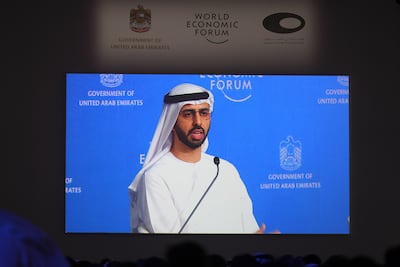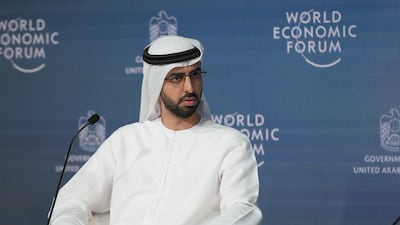Governments must introduce boundaries for artificial intelligence or risk losing control of the technology, the UAE's AI minister warned.
“We do not have time to afford to wait for this to get out of hand,” Omar Al Olama, Minister of State for AI, Digital Economy and Remote Work Applications, said at the Annual Meeting of the Global Future Councils in Dubai on Wednesday.
Speaking at the two-day World Economic Forum event, Mr Al Olama compared the situation to the advent of social media, with governments only now trying to tackle technology that emerged more than 15 years ago.
“So today, we're talking about the issues that social media is causing … and some of the guidelines that we are needing,” he said. “But I'd say social media was a problem in 2008, 2007 – and today we're talking about potential solutions. And we have seen the impact in politics … in mental health … in the crises we're seeing.”

Mr Al Olama stressed the need for proactive regulations to address the rapid evolution of AI and its implications for national and international security.
“If decision-makers are aware of what is happening around them, they'll be able to take the right decisions,” he said. Awareness of emerging trends is key to effective governance, he added.
“The pretext to everything that we're doing in the UAE is awareness – understanding what are the trends and what are the tides that are shifting,” he said.
Mr Al Olama emphasised the UAE's position as an agile and ambitious nation capable of attracting global talent. “In the UAE, there is a palpable sense of urgency to create the future,” he said. “You come here and you feel like there's an urgency to create the future. It is something in the air.”
Lauren Woodman, co-chairwoman of the Global Future Council on Data Equity and AI Governance, acknowledged the complexities involved in regulating AI.
“How do we make sure that we are building the right incentives in place for AI to be used for good?” she said, stressing the importance of transparency and accountability.
Mr Al Olama repeated that the challenges posed by AI are not new. He noted that technology has historically been used for beneficial and harmful purposes.
“You’re speaking about this as if it's a new phenomenon, but it's not. It's been a phenomenon since the advent of the technological age,” he said.
He called for a shift from reactive to proactive approaches in regulating AI, emphasising the need for urgency. He also highlighted the role of media in educating the public about the technology.
“The job of the media is to ensure that this is top of mind, so that there is enough of this in the public discourse, that your governments can take more action,” he said.


